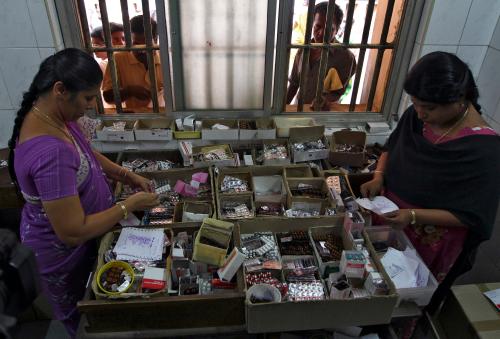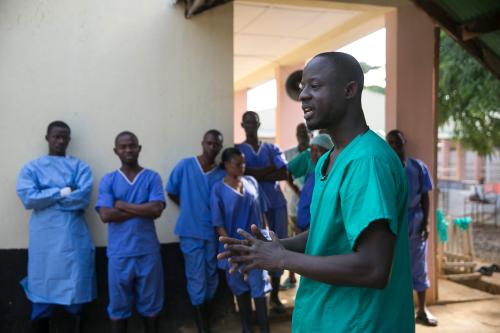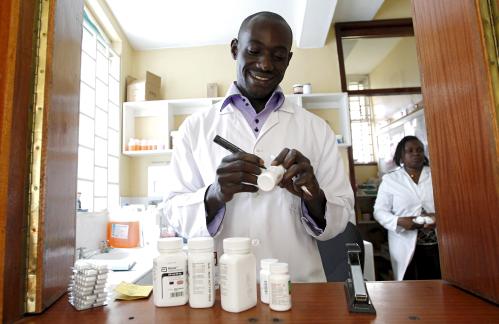On March 30, the Center for Technology Innovation (CTI) at the Brookings Institution hosted three expert panelists at our forum on health governance capacity to discuss the findings of the recently released Health Governance Capacity report. This was the first of six reports to be released as a part of the Brookings Private Sector Global Health R&D Project.
After opening remarks, the panelists discussed the results of the Health Governance Capacity Index (HGCI), trends in global public health, and the future of the health R&D landscape. The panelists included Amanda Glassman of the Center for Global Development, Loyce Pace of the Global Health Council, and His Excellency Pham Quang Vinh, Ambassador of Vietnam to the United States.
“To set the stage of where we are in global health right now, there is this ‘perfect storm’ that has been coming for a while,” observed Loyce Pace. “The first part of that is the burden and how the burden has shifted over time due to the epidemiological shift making it harder to reach hard-to-reach populations … and the other elephant in the room is the ‘money,’ the funding, and, finally, there is the political landscape,” she stated. How to address these glaring problems: prioritizing the private sector and public-private partnerships (PPPs). “Private sector investment and public-private partnerships don’t just make people feel good—they make sense,” Pace indicated.
Amanda Glassman added that “it is a useful exercise to try to connect health system governance to domestic and foreign private investment in health.” The necessity for such projects stems from the need to increase private investment in health. Aid—and especially public aid—has been slowing, so methods for boosting private investment are increasingly necessary. Glassman mentioned the Addis Ababa Financing for Development Conference’s goal of ‘billions to trillions,’ noting that “the vast majority of those funds are supposed to come from the private sector.” Glassman also asked, “How much is governance a driver of private investment?” and recommended further research on the connection between governance and private sector investments in global health research and development.
Ambassador Vinh spoke on behalf of Vietnam, the country that had the highest overall HGCI scores of the 18 countries considered in our index. “We need the grass root services, which are especially important in Vietnam, because we have urban areas, as well as the mountainous regions,” stated Ambassador Vinh. In order to attract private investors, he recommended improving legal, regulatory and human resources. Ultimately, he acknowledged that “Even though Vietnam ranked so high, at the same time we have a lot of challenges.”
The next report in our six-part project will focus on trends in health spending flows. Global health funding, particularly from the public sector, has not changed significantly since 2010. Competing priorities between communicable and non-communicable diseases also impact funding flows. Increased need in a time of insufficient resources, changing allocation of the available capital, and shifting disease burdens corroborate Loyce Pace’s observation of a “perfect storm” in global health R&D.
The Brookings Private Sector Global Health R&D Project will address health-spending flows in its next report, to be published in the summer of 2017. Please forward any questions to [email protected].
Ana Jimenez contributed to this post.
The Brookings Institution is committed to quality, independence, and impact.
We are supported by a diverse array of funders. In line with our values and policies, each Brookings publication represents the sole views of its author(s).










Commentary
Forum on health governance capacity sees bigger role for private R&D investment
April 14, 2017